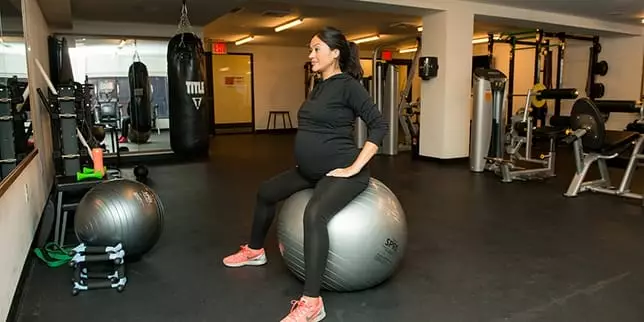Pregnancy is often painted as a joyful journey filled with an array of emotions and experiences. Yet, the physiological changes that occur can lead to discomfort, with hip pain being a common complaint. As you enter the second trimester, a time often characterized by increased energy and a growing baby bump, many women find themselves facing challenges with hip discomfort. This article advocates for understanding the causes of hip pain during pregnancy and introduces effective exercises that may alleviate such discomfort.
Hip pain during pregnancy can arise from two main conditions: sciatica and round ligament pain. Sciatica refers to the irritation of the sciatic nerve, which can result in pain radiating from the lower back to the hips, buttocks, and thighs. This condition may worsen as the baby grows and exerts more pressure on the spine and surrounding nerves.
On the other hand, round ligament pain is caused by the stretching of the ligaments that support the uterus. This discomfort is usually felt in the groin area and can intensify during specific movements, such as turning over in bed or getting up from a seated position. Recognizing the root causes of hip pain is essential for effective management and relief.
While experiencing hip pain during pregnancy can be frustrating, incorporating targeted exercises can help significantly. Before starting any exercise regimen, consult your healthcare provider to ensure safety throughout your pregnancy. Below are several effective exercises designed to stretch and strengthen the areas surrounding your hips:
Begin by sitting on the edge of a blanket for comfort. Cross one ankle over the opposite knee and, if possible, stack the other ankle on top. As you lean forward gently, you will instantly feel a stretch in the outer hips. This action promotes flexibility and eases tightness in the hip joint.
Lying on your back, particularly with a small blanket supporting your lower back, bend your knees and bring your heels close to your body. Lift your hips until your body forms a straight line from your knees to your shoulders. Ensure that your glute muscles are relaxed while holding this position for approximately 30 seconds. This stretch can help strengthen the lower back and relieve tension in the hip area.
This delightful pose allows you to embrace the joy of pregnancy while relieving discomfort in the hips. Lie on your back and lift your legs, holding onto the outsides of your feet. Pull your knees towards your armpits, engaging your core and maintaining a flat back. This position provides a satisfying stretch to the lower back and hip areas.
Start on all fours, then sink your hips back towards your heels as you stretch your arms forward. This restorative pose elongates the spine and helps release pressure in the lower back, contributing to overall hip comfort. If your growing belly limits your movement, using a cushion or block can facilitate support.
Aside from targeted exercises, being mindful of posture during daily activities is crucial for hip pain management. As your body weight shifts with the growing belly, consciously engage your glute muscles when walking. This practice not only assists with pain relief but also helps build strength in the postpartum period.
For those who are seeking additional support, prenatal massage or physical therapy can provide tailored care. Consultation with professionals who specialize in pregnancy-related issues can ensure that you practice safe and effective techniques for hip alignment and pain relief.
As you navigate the changes and challenges of pregnancy, managing hip pain is an essential aspect of your overall well-being. By staying informed about its causes and incorporating simple exercises into your routine, you can foster a more enjoyable pregnancy experience. Remember always to consult with your healthcare provider before embarking on new exercises, ensuring that you are supported in your journey toward comfort and health.
Your journey through pregnancy is unique, and being proactive about your body’s needs can pave the way for not only better pain management but also a more seamless transition into motherhood. Embrace self-care, and always prioritize your comfort as you prepare to welcome your baby into the world.

